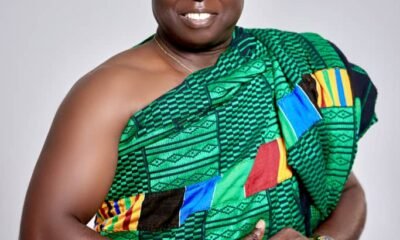Profile
Prof. Raphael Nyarkotey Obu …first Natural Medicine Lawyer in Africa

Prof. Nyarkotey
Professor Raphael Nyarkotey Obu, a distinguished naturopathic Professor and an esteemed advocate for traditional and complementary medicine, has made history by becoming the first naturopath in Africa to be called to the Gambia Bar.
Known for his exceptional dedication to advancing healthcare through both legal and technological frameworks, Prof. Nyarkotey is pioneering a new era in traditional and naturopathic medicine.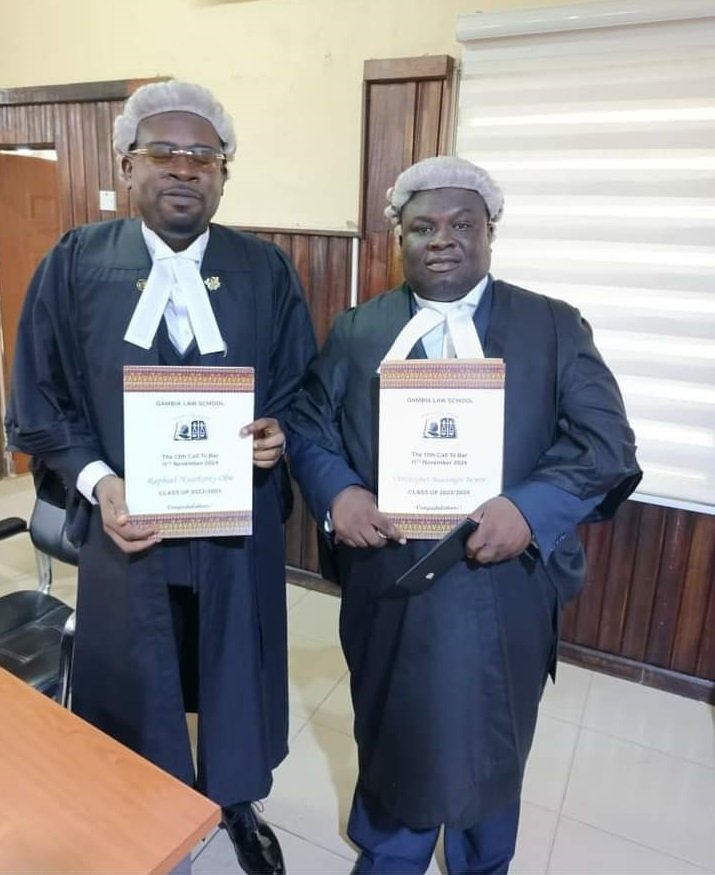
At just 39 years old, he is already transforming healthcare across the continent and using his legal expertise to shape a regulatory framework for traditional and complementary medicine, bringing a new level of professional credibility and public trust to the field.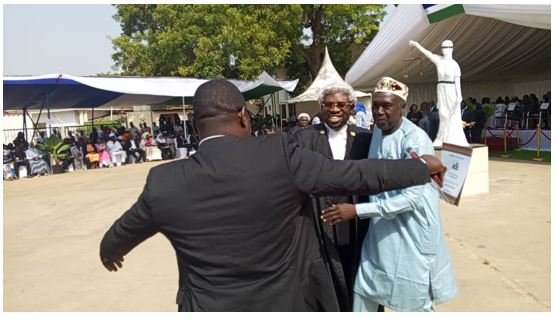
In addition to his recent legal accomplishment, Prof. Nyarkotey serves as the president of Nyarkotey University College of Holistic Medicine and Technology, Ghana’s first naturopathic medical school, which he founded to provide education in holistic health and technology.
His leadership extends further: he led a team to develop Ghana’s first National Occupational Standards in naturopathy and holistic medicine at the HND and BTech levels under the Commission for Technical and Vocational Education and Training (TVET).

These achievements, along with his work as General Secretary of the Ghana Alternative Medical Practitioner Association (GAMPA) and as part of the research advocacy team for the World Naturopathic Federation in Canada, underscore his commitment to raising standards and advancing the professional development of alternative medicine across Africa.
In the Gambia, Prof. Nyarkotey has supported traditional healers and pioneered evidence-based naturopathic medicine. He also used his legal training days to raise awareness of Gambia’s forgotten herbs and made them popular through his scientific writing.
He has authored so many legal commentaries on the regulatory legislative framework on traditional and naturopathic medicines in the Gambia and Africa.
“With my legal qualifications, I aim to work with various African governments and health organisations to create a unified framework that supports traditional and complementary medicine,” said Prof. Nyarkotey Obu.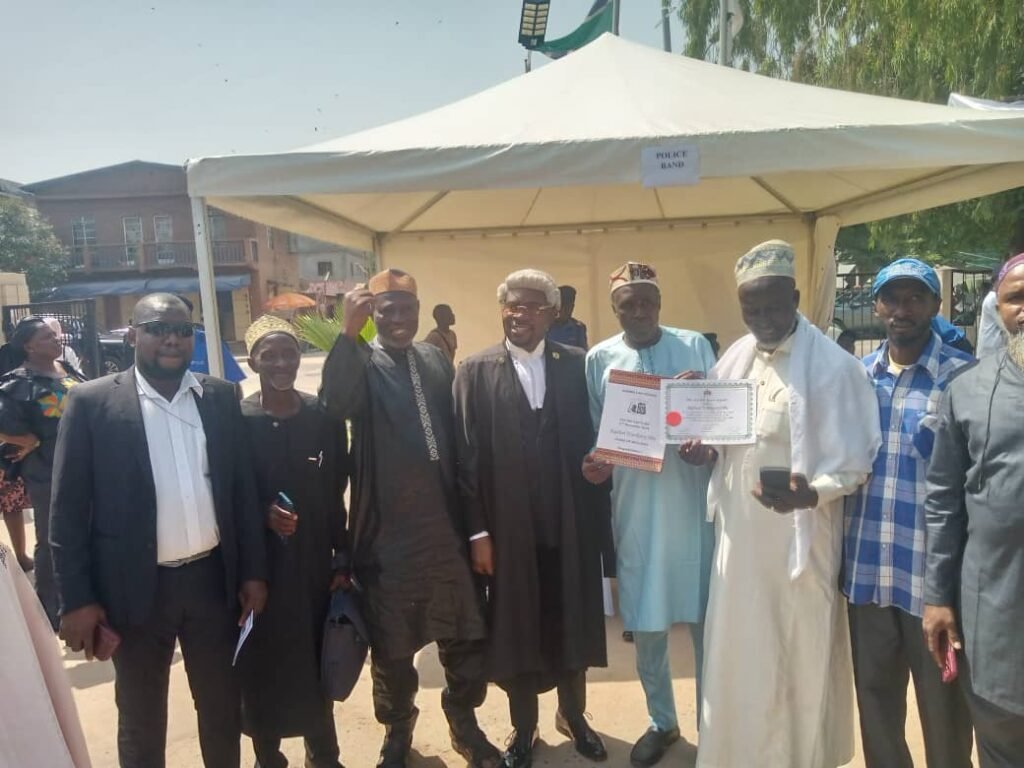
“There is a growing demand for these practices, yet the lack of regulation often leads to misuse and public skepticism. My goal is to bring about a change in how these treatments are perceived and implemented, safeguarding public health and honouring African traditions,” he added.
Prof. Nyarkotey is not only a renowned Naturopath, but also doubles as a Chartered Health Economist and Chartered Management Consultant.

He is also pursuing a second MPhil/PhD in Law and Development at the Institute of Development and Technology Management (IDTM) in Cape Coast, Ghana.
His research focuses on medical negligence and Alternative Dispute Resolution (ADR), an area of critical importance for African healthcare. By promoting ADR, he aims to provide pathways for fair, non-litigious resolutions, protecting both practitioners and patients within traditional medicine.
Prof. Nyarkotey is also at the forefront of exploring Artificial Intelligence (AI) in traditional and naturopathic medicine, investigating ways AI can revolutionise the delivery and personalisation of natural medicines.
This approach promises new, tech-enhanced treatment options for underserved communities, enabling traditional healers to leverage data-driven insights for better patient outcomes.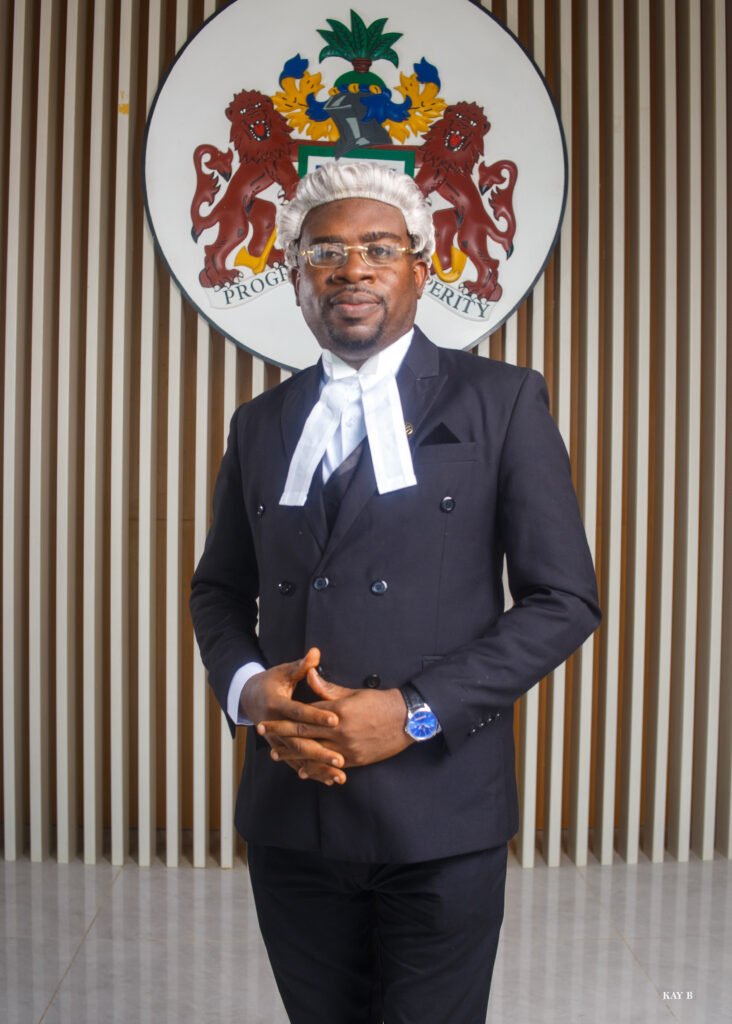
As a deeply committed Christian, Prof. Nyarkotey balances his professional pursuits with a strong personal faith. His determination and leadership have made him a trailblaser, setting a new standard for traditional and naturopathic medicine in Africa.
His upcoming consultancy firm aims to unite healers and legal experts, offering regulatory and technological support, as well as legal protection for traditional healers.
Prof. Nyarkotey’s journey, from founding Ghana’s first naturopathic school to joining the Gambia Bar, reflects his drive to secure a place for traditional and naturopathic medicine in Africa’s healthcare landscape, and building a future where it is both accessible and regulated. His visionary leadership is helping ensure that traditional medicine will be a credible, trusted, and vital part of healthcare across Africa.
Profile
Autism Awareness Care & Training: Pioneering autism care, inclusion in Ghana
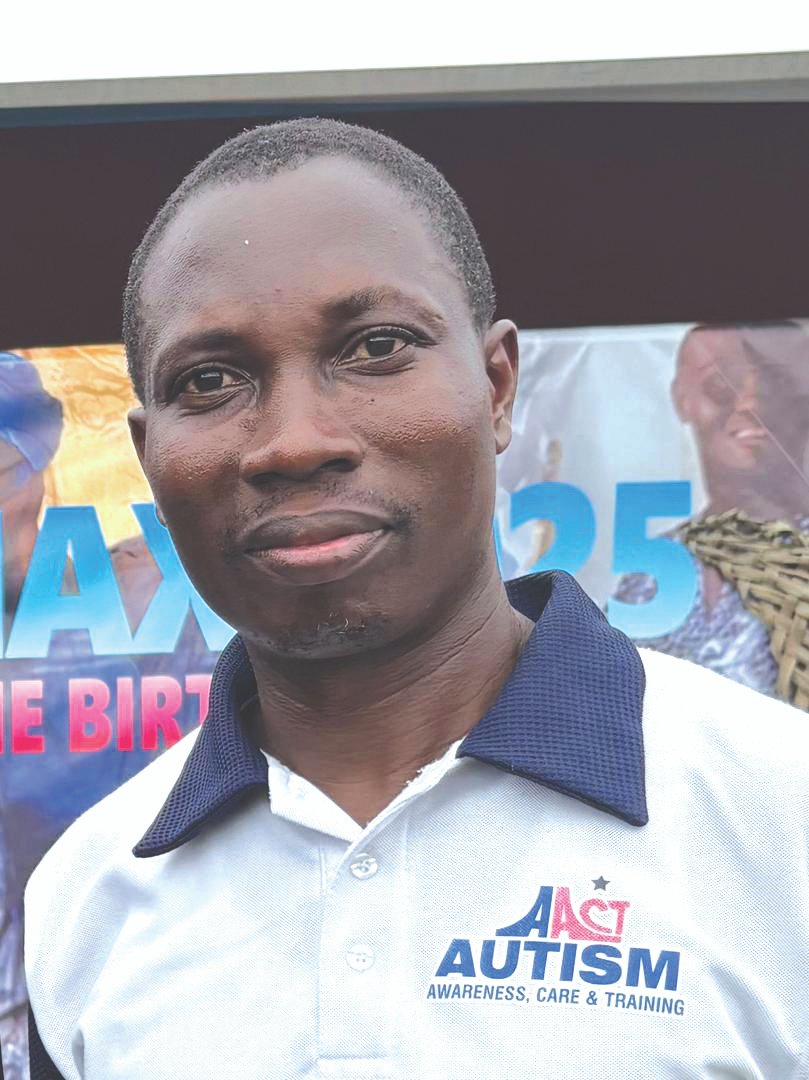
AUTISM Awareness Care and Training (AACT) is Ghana’s first autism-focused centre, playing a pioneering role in the care, education, and advocacy for children on the autism spectrum and their families.
Established in 1998, AACT began as a parent-support and training initiative at a time when autism was poorly understood in Ghana. Many families raising autistic children faced stigma, isolation, and limited access to information or professional assistance.
Over the years, the organisation has evolved into a full-fledged autism care and training centre, responding to the growing demand for specialised services and sustained nationwide awareness.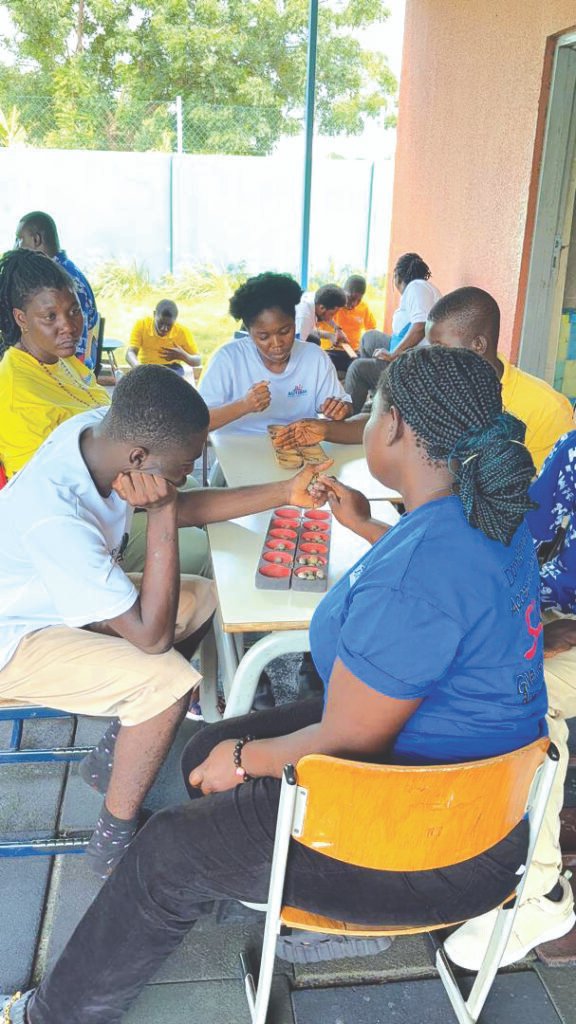
AACT is currently located in Haatso, Accra, where it operates a structured day programme serving about 25 learners daily. The centre provides a safe, inclusive, and supportive environment where children with autism are guided to develop essential life, social, and functional skills.
Programmes at the centre focus on independent living skills, vocational and pre-vocational training, functional academic skills, and therapeutic interventions. These activities are tailored to the individual needs of each learner, recognising that children on the autism spectrum learn and develop at different paces.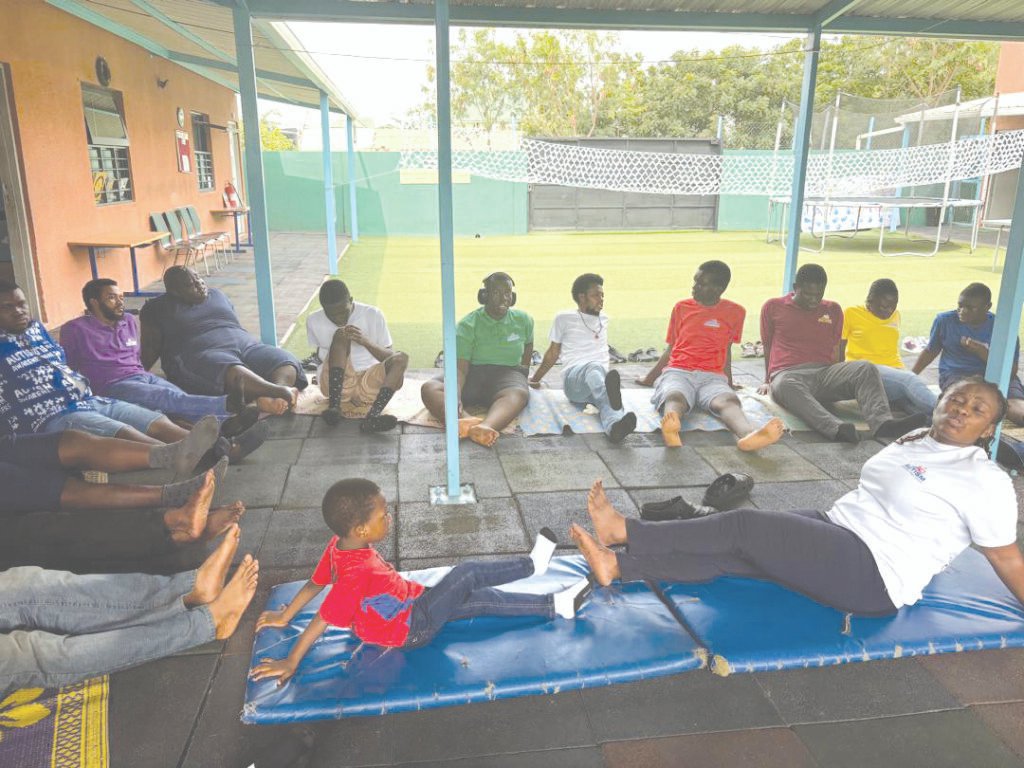
According to Abeiku Grant, Head of Programmes at AACT, the centre’s philosophy is centred on ability rather than limitation.
“Every autistic child is different,” he said. “Our work is to support them at their own pace and help them discover what they can do, not to focus on what they cannot do.”
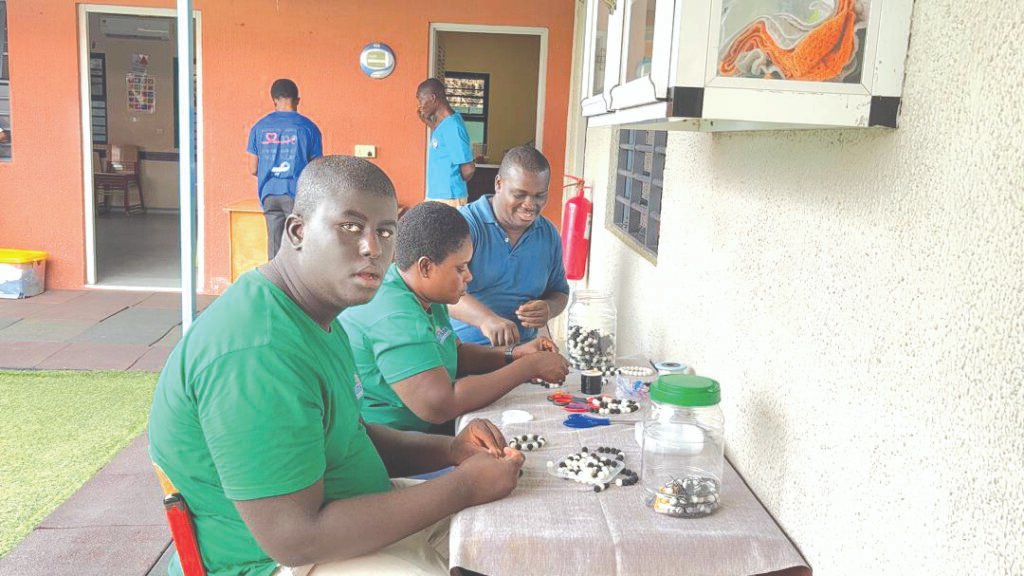
Beyond centre-based services, AACT places strong emphasis on autism awareness and advocacy, particularly within schools and communities. Many children with autism in Ghana continue to face rejection and exclusion due to stigma, misinformation, and the lack of trained personnel in educational institutions.
In 2025, AACT reached over 20 schools across the country, providing autism education to teachers, students, and school administrators.
The organisation also runs free teacher training programmes, equipping educators with practical knowledge and basic tools to support autistic learners in inclusive classroom settings.
“Many schools tell us they are not resourced or trained to handle autistic learners,” Mr Grant explained. “Instead of waiting for change, we decided to go to them and train teachers for free.”
AACT also engages learners directly, addressing widespread misconceptions about autism, including the false belief that autism is contagious or caused by bad parenting. These outreach programmes aim to build empathy among students and promote peer support for autistic learners in mainstream schools.
Another major challenge confronting families is limited access to autism services, especially outside Accra. With most autism centres concentrated in the capital, many families from other regions are forced to travel long distances or keep their children at home due to cost, stigma, or lack of support.
“Education is not meant only for typical children,” Mr Grant stressed. “Children with autism also have the right to education and care. No child should be hidden because of lack of understanding or opportunity.”
As part of its outreach work, AACT supports parents to overcome stigma and encourages social interaction for children with autism, believing that community engagement is essential for development and confidence building.
In December 2025, the centre received what it described as its largest donation of the year, raised by children from the Unmasked Mentoring initiative. According to the organisation, the donation was particularly significant as it demonstrated empathy and social responsibility among young people.
As a non-governmental, non-profit organisation, AACT depends largely on donations, partnerships, and goodwill to sustain and expand its work. Current needs include a minibus for community-based social activities, expansion of its facility to accommodate more learners, sponsorship support for children from financially challenged families, and funding to scale autism awareness programmes nationwide.
Looking ahead, AACT envisions a Ghanaian society that is inclusive, informed, and supportive of persons with autism.
“Our goal is a Ghana where children with autism are accepted and supported,” Mr Grant said. “Every child has potential. All they need is understanding, opportunity, and care.”
By Esinam Jemima Kuatsinu
Join our WhatsApp Channel now!
https://whatsapp.com/channel/0029VbBElzjInlqHhl1aTU27
Profile
Northern Ghana FOTO Festival celebrates culture, history with over 600 images

If you found yourself in Tamale last weekend, you would have stepped into an atmosphere alive with colour, rhythm and memory. The maiden Northern Ghana FOTO Festival did not feel like a typical exhibition; it felt like a cultural awakening.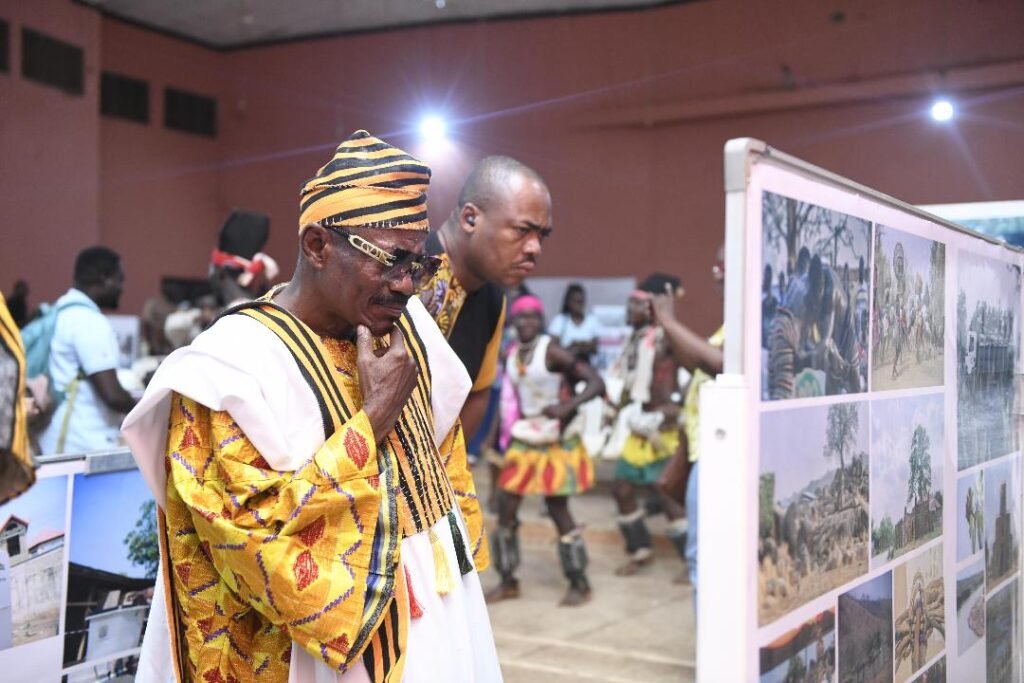
Between rows of tall white panels displaying hundreds of striking images, a cultural troupe danced their way through the space, their drumming rolling through the hall like a heartbeat. The dancers’ movements fluid, bold, traditional, created a living bridge between the past and the photographs surrounding them.
Not far from the performers, chiefs in their elegant traditional regalia paused thoughtfully before portraits capturing festivals, rituals and everyday life. This immersive scene set the tone for the Northern Ghana FOTO Festival, which opened in Tamale with a resounding call for cultural preservation through visual storytelling.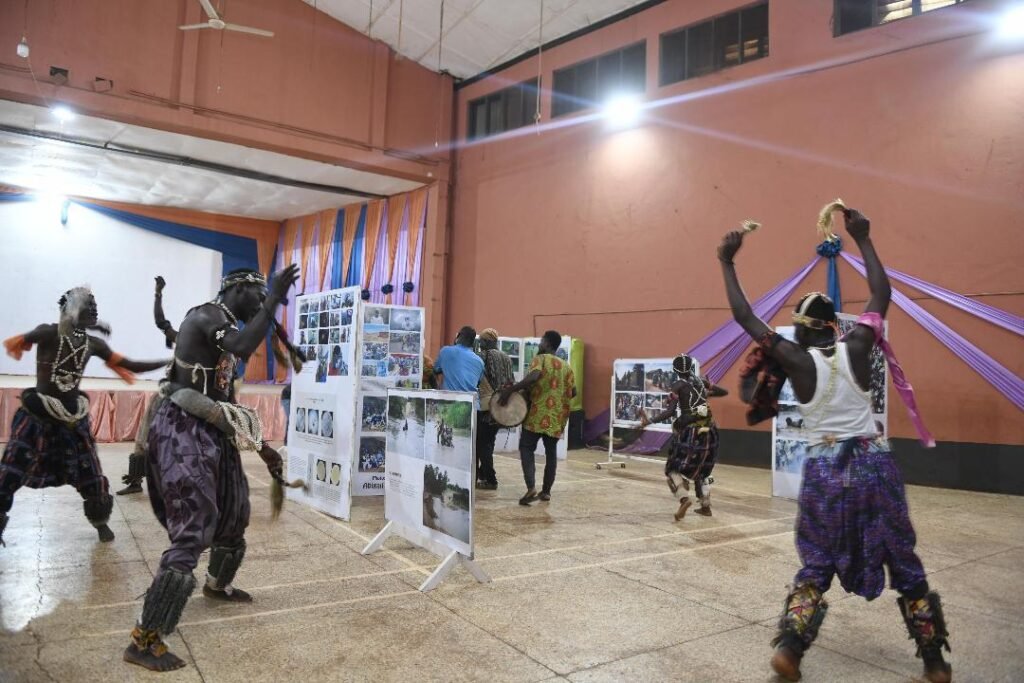
The event gathered photographers, cultural advocates, scholars and traditional leaders to celebrate the narratives, traditions and identities that shaped northern Ghana. Originally launched with a call for just 30 photographic entries, organisers were overwhelmed with more than 600 images submitted by over 60 contributors from across the five northern regions.
The range of submissions from seasoned photographers and emerging artists to passionate hobbyists formed a vivid collective portrait of the region’s past and present. The opening ceremony amplified the festival’s cultural spirit with traditional drumming, dancing and performances that reflected the rich heritage the exhibition sought to highlight.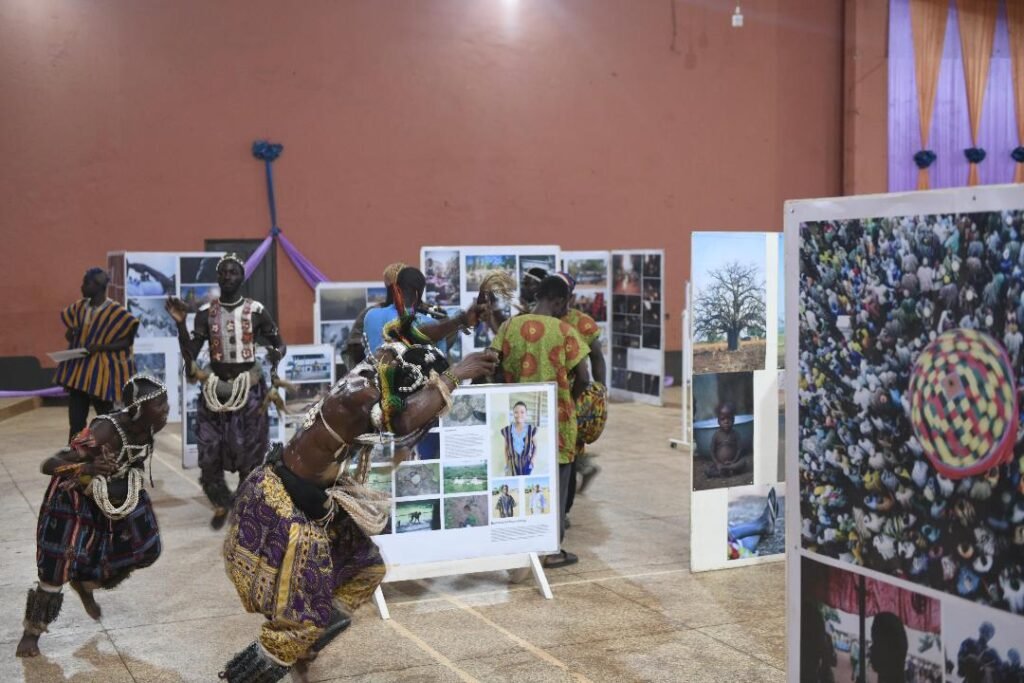
Chairperson for the event, Prof. Elliot Haruna Alhassan, Pro Vice-Chancellor of the University for Development Studies (UDS), described photography as a crucial tool for documenting Ghana’s cultural evolution. He emphasised that visual storytelling is becoming indispensable in safeguarding customs, values and community memory.
The Guest of Honour and former Rector of Tamale Technical University, Prof. Salifu Asuro, praised the organisers for creating a platform that elevates the cultural identity of northern Ghana. He encouraged public and private institutions to support creative arts initiatives, noting their significant role in national development.
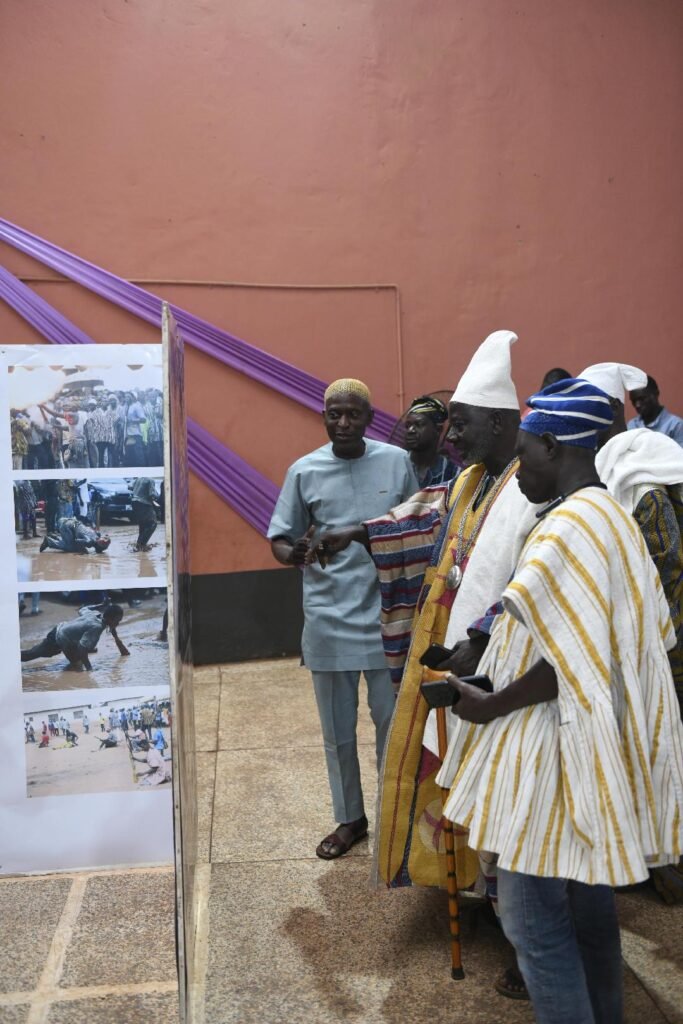
Traditional authorities played a central part in the ceremony. Representatives from the Gukpe Naa and Dakpemaa palaces including Naa Prof. Abdul-Rahaman Issahaku, Chief of Gbanyamle and senior faculty member at UDS, as well as the Chief of Bunbong, Uborr Wumbe Dawuni—commended the festival for fostering cultural continuity and encouraging younger generations to reconnect with their roots.
Speaking on behalf of the Northern Regional Director of the Ghana Tourism Authority, Mr Owusu-Boakye Frank, Senior Standard and quality assurance officer assured the Authority’s commitment to supporting cultural tourism. He stressed that visual storytelling, when harnessed effectively, has the potential to attract visitors, preserve cultural assets and strengthen community identity. He pledged the Authority’s collaboration in future editions to position northern Ghana as a vibrant hub for creativity and heritage.
One of the festival’s major highlights was a panel discussion on the theme: “Preserving Culture, History and Community through Visual Storytelling.” Chiefs, scholars and cultural experts explored the importance of visual documentation as a tool for intergenerational education, emphasising photography’s ability to create a timeless cultural archive.
Team Lead of Foto4Change and convener of the festival, Mr Geoffrey Buta, said the initiative seeks to strengthen cultural conservation efforts through photography. “Our forebears relied on oral tradition to preserve history,” he noted. “Today, visual storytelling enables us to continue that work in a more permanent and accessible form.”
Mr Buta announced plans to transform the festival into a rotational exhibition that will travel across northern Ghana, giving more communities access to the growing visual archive. He added that the event would be institutionalised as an annual celebration of culture, research and artistic dialogue.
The displayed photographs captured festivals, landscapes, portraits, rituals and everyday life offering a colourful, honest and layered view of northern Ghana’s cultural richness. Organisers expressed optimism that with sustained institutional support, the Northern Ghana FOTO Festival could evolve into a major cultural event capable of attracting both national and international attention, while preserving the heritage and stories that make the region unique.
By Spectator Reporter

